When most people think of different types of ammo, the first thing that pops into their minds is different bullet calibers.
However, calibers aren’t the only way that ammo types are classified. When classifying bullets you should also consider full metal jacket vs. hollow point bullets.
Both full metal jacket bullets consist of an outer copper casing that contains a soft lead core. The main difference between these types of bullets is that the casing of hollow point ones has a hollow tip. This causes these bullets to expand when they make contact with soft tissue.
Read on to find out more about the difference between full metal jacket and hollow point bullets, as well as the pros and cons of using each type. This guide also includes guidelines on which type of bullet to use in different situations.
What Are Full Metal Jacket Bullets?
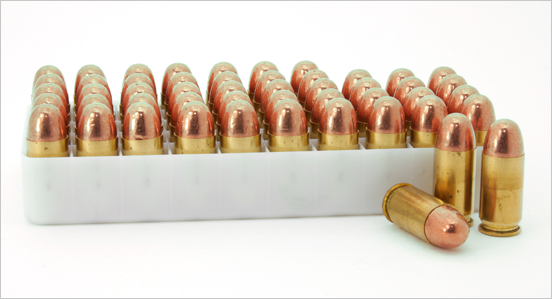
Full metal jacket bullets are composed of a metal casing containing a core made out of a softer metal. The exterior casing of full metal jacket bullets is typically made of copper. Some of these bullets’ casings are made out of steel alloys.
On the other hand, these bullets’ core is usually lead-based.
If a person or animal has been hit with a full metal jacket bullet, they’re likely to have both an entry and an exit wound. This is because these bullets are designed for maximum penetration.
The structure of full metal jacket bullets allows them to maintain their path, even when they make contact with soft tissue.
Additionally, full metal jacket bullets don’t expand when they hit their target unless that target is made out of an extremely hard material.
Pros
When you’re facing issues with the accuracy of your gun’s aim, a highly common cause of this is the barrel of your firearm.
Since most bullets contain lead, they can cause lead build-up to occur in your gun’s barrel over time. This alters the path of bullets being discharged from your weapon.
The way full metal jacket bullets are constructed significantly decreases the amount of lead that each bullet leaves behind in your gun’s barrel. This is because the barrel is sheltered from the bullets’ lead core by the metal casing that surrounds it.
This improves the lifespan of your gun and makes cleaning its barrel much less of a hassle.
Another advantage of full metal jacket bullets is that they’re cheap. This makes them ideal for target practice. That’s because you can fire plenty of bullets without worrying about having to spend a bunch of money on new ones.
Cons
However, full metal jacket bullets aren’t without their drawbacks. The most significant downside to using full metal jacket bullets in certain situations revolves around their high level of penetration, such as with .40 caliber pistols using 200 gram FMJ rounds that can easily punch through 12 inches of ballistic gel.
Since these bullets easily slice through soft tissue, using them comes with a high risk of unintentionally hitting something or someone else in addition to your target.
This is why full metal jacket bullets are definitely not the best choice for self-defense and home-defense uses.
If you find yourself in a situation where you’re being assaulted by someone in a dark alley, firing a full metal jacket bullet at the culprit will indeed neutralize the threat. However, the bullet will also go right through the threat and might hit an innocent passerby.
The same is true if you fire a full metal jacket bullet at a home invader. The bullet might penetrate a wall behind the burglar and damage your property, or even worse, hit a member of your family.
What Are Hollow Point Bullets?
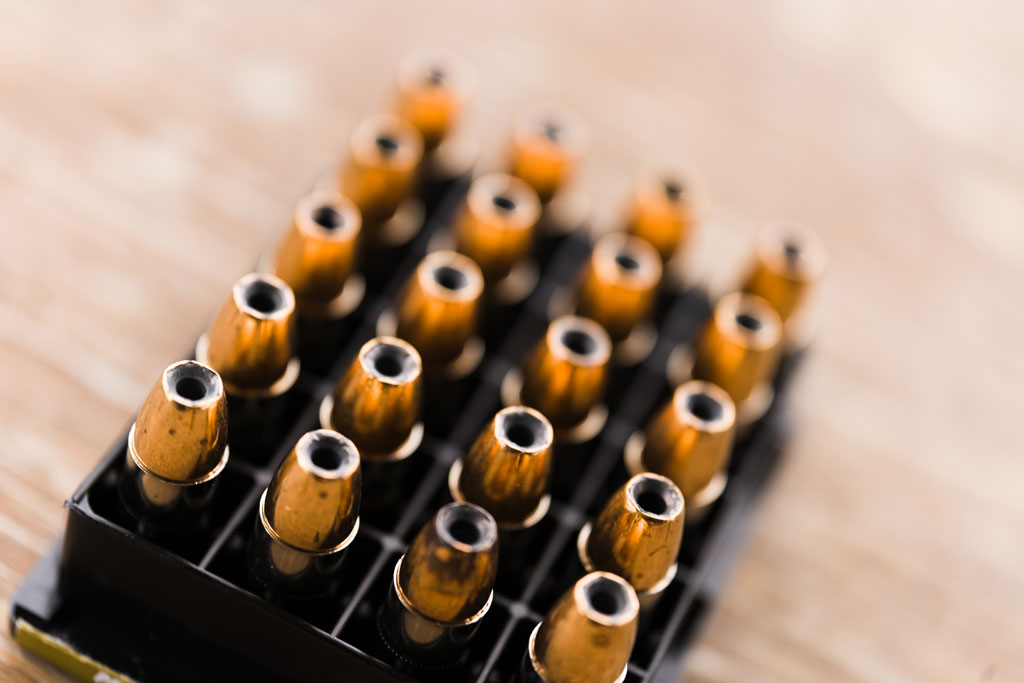
In terms of their material, hollow point bullets are virtually identical to full metal jacket bullets. They’re also constructed out of a lead core encased in a copper shell.
The difference between hollow point and full metal jacket bullets comes down to their design. While full metal jacket bullets have a metal casing that completely covers their core, the casing of hollow point bullets has a hollow tip.
This allows the bullet to expand when it makes contact with soft tissue. The lead core seeps through the hollow tip, causing the bullet to assume a mushroom shape inside of the target’s body.
This expansion brings the bullet to a halt, leading to the bullet settling inside the target as opposed to going through its body. Therefore, hollow point bullets have much lower penetration than full metal jacket bullets.
The damage inflicted by hollow point bullets is more severe than that of full metal jacket ones. This is because the bullet’s expansion creates a larger wound, giving it a higher chance of piercing the target’s vital organs.
Pros
Hollow point bullets are much more suitable for self-defense and home-defense use than full metal jacket bullets.
They’re designed to stay inside, not to penetrate the target. This ensures that the bullet you fire will hit the intended target and not make contact with anything or anyone else. Important if you plan on relying on pocket pistols for self-defense in public.
Additionally, the fact that these bullets expand when they hit soft tissue, means that one bullet is likely to be enough to neutralize the threat.
This same feature also makes hollow point bullets the best choice for hunting, particularly when you’re targeting large animals.
Cons
One of the main drawbacks of hollow point bullets is that they take more time to load into your weapon than full metal jacket ones. This means they can be a bit cumbersome in situations where you need to be locked and loaded quickly.
Another reason why some people decide against using hollow point bullets is that they’re quite a bit more expensive than full metal jacket bullets.needed. You can pick whatever you want to link to…
Full Metal Jacket Bullets vs. Hollow Point Bullets: Which Is Better?
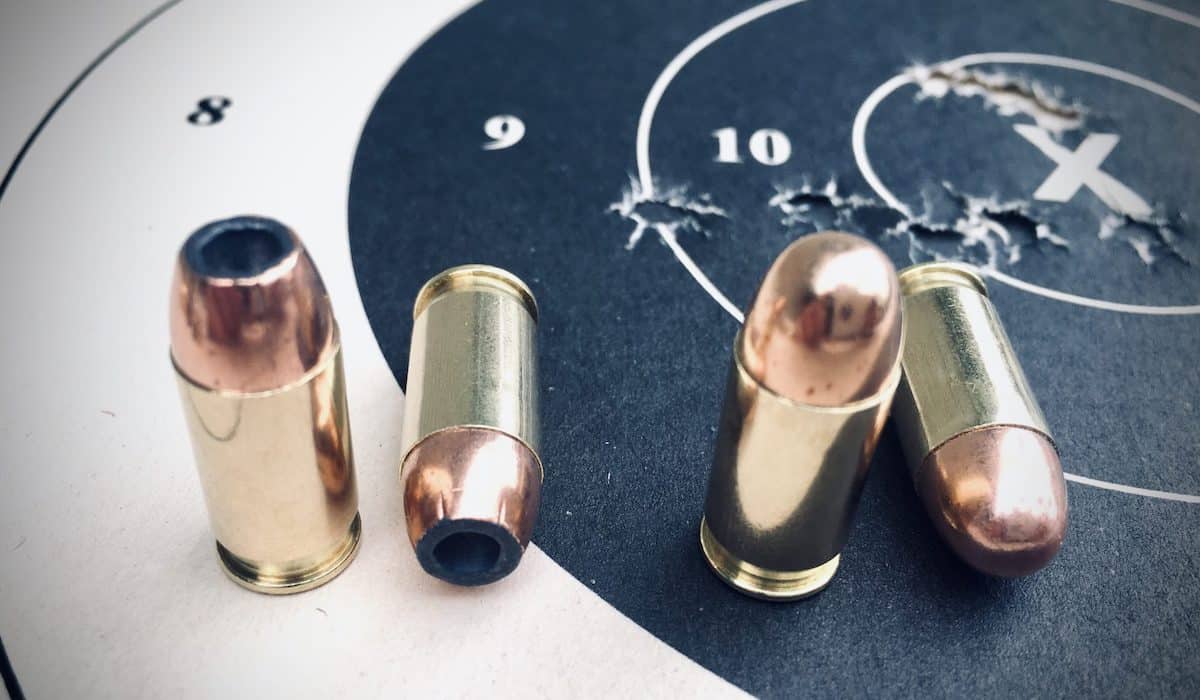
Now that we’ve covered both types of bullets, you’re probably wondering which is better.
There’s no one right answer to this question, it all depends on what you intend to use them for. Each of these types of bullets is more suitable for different situations.
Here are some common situations where the use of bullets may be called for. Let’s explore which bullet type is best for each one.
Target Practice
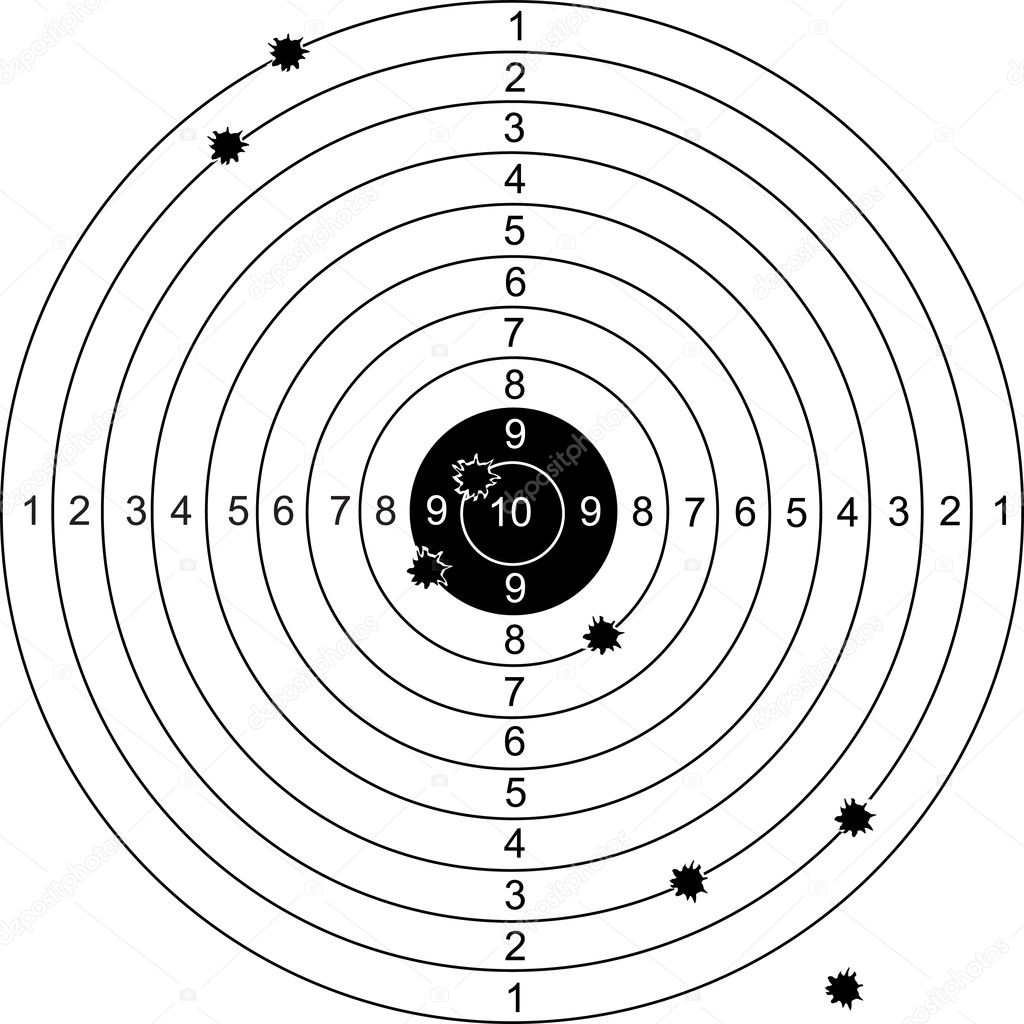
If you plan on taking a trip to the shooting range to work on your aim (with one of our most accurate 9mm pistols for example), the bullets you take with you should definitely be full metal jacket ones.
This is because they’re much cheaper, allowing you to fire as many bullets as you want, without having the dread of having to shell out a lot of cash to buy more bullets for your next trip. This gives you the ability to get a lot of practice, and in turn, better results in improving your aim.
Self Defense
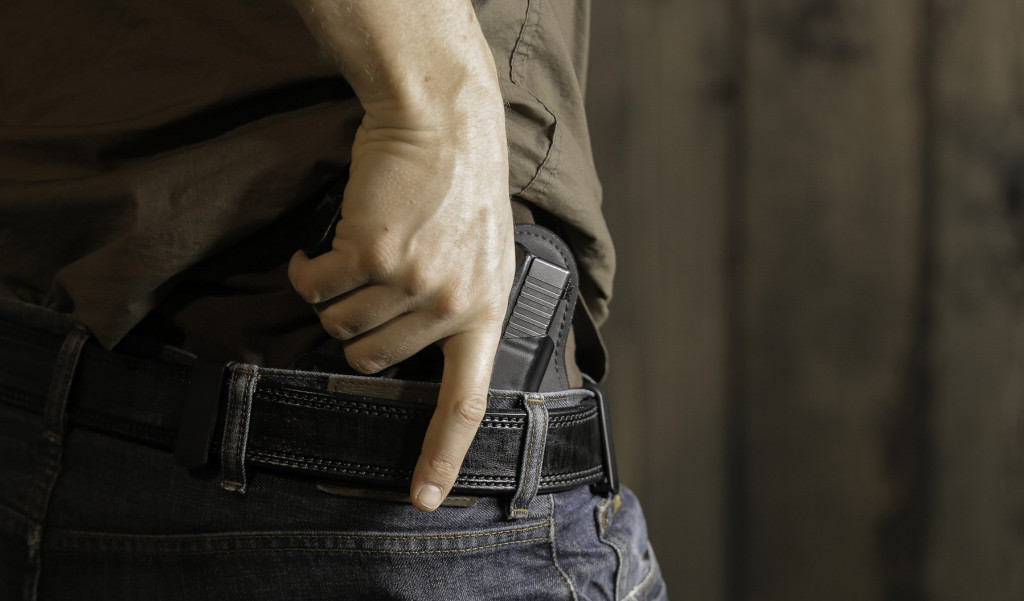
If you’re buying bullets to load into a firearm you intend to use for self-defense, then hollow point bullets are undoubtedly the way to go.
These bullets’ expansion gives them the perfect combination of low penetration and high damage that’s needed for self-defense purposes.
By using hollow point bullets in these situations, you significantly lower the risk of damaging your home in your attempts to defend it from a dangerous intruder. It also poses a lower risk of hitting an unintended target and having a tragic accident occur.
Hunting

When it comes to hunting, hollow point bullets are usually considered to be the better option. However, some people prefer to use full metal jacket bullets to hit their prey.
The advantage of using hollow point bullets is that they’re more likely to immediately kill or at least neutralize the target. This is especially useful when hunting large animals such as bucks.
On the other hand, full metal jacket bullets make up for their relative lack of damage with their accuracy and range.
Full metal jacket bullets are better at maintaining their trajectory than hollow point ones. This makes them the better option if you’re going to be hunting from long distances.
Wrapping-Up
When using your firearm, making the right choice with regard to the type of bullets you should use is essential. Adhering to gun safety rules is also very important.
When you’re considering full metal jacket bullets vs. hollow point bullets for your handguns, your choice should come down to the purpose you intend to use the bullets for.
Both these types of bullets are made out of a soft lead core encased in a copper shell. The main difference between them is that hollow point bullets expand when they hit their target, while full metal jacket bullets don’t.
This makes these bullets’ level of penetration, and the extent of the damage they inflict on your target different.
Since hollow point bullets have low penetration and high damage, they’re more suitable for self-defense purposes.
The high penetration of full metal jacket bullets makes them great for hunting at a distance. Contrary to that, hollow point bullets are deterred a little by air friction before hitting their aim.












